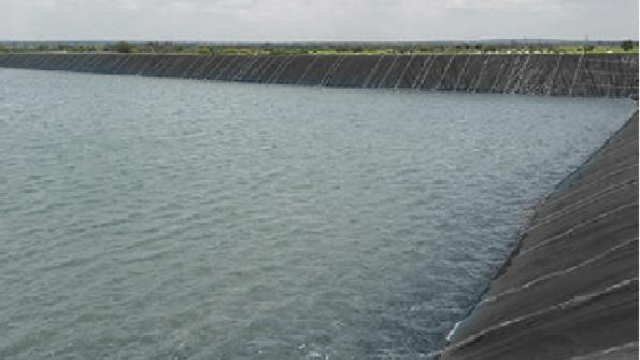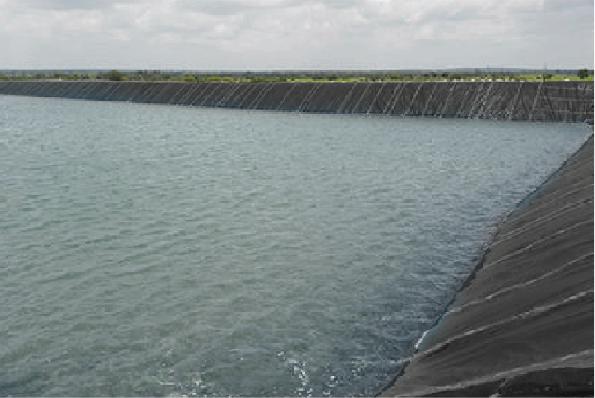
The Ultimate Guide to Geomembrane: Everything You Need to Know
Ryan Flores -
Welcome to "The Ultimate Guide to Geomembrane: Everything You Need to Know". In this comprehensive article, we will dive into the world of geomembranes and explore all the essential information you need to understand this remarkable material. Geomembranes play a crucial role in various industries, offering invaluable solutions for environmental and civil engineering projects.
Geomembrane, also known as "bpmgeomembrane," has emerged as a leading China geomembrane manufacturer and supplier since 2010. With their expertise and dedication, bpmgeomembrane has become a trusted name in the industry, providing top-quality geomembranes that meet the highest standards. Whether you are involved in waste management, agriculture, water containment, or mining, understanding the characteristics, installation methods, and applications of geomembranes is vital.
In this article, we will delve into the benefits and applications of geomembranes, exploring their versatility in preventing seepage, minimizing soil erosion, and creating reliable barriers. From the different types of polymers used to manufacture geomembranes to the considerations for selecting the ideal thickness and durability, we will equip you with the knowledge to make informed decisions for your specific project requirements.
Stay tuned as we navigate through the intricacies of geomembrane installation, discussing proper site preparation, geomembrane welding techniques, and quality control measures. We understand that every project is unique, and we aim to provide you with comprehensive insights into the best practices for successful geomembrane installation, ensuring long-term efficiency and cost-effectiveness.
Get ready to explore the fascinating world of geomembranes and discover why they have revolutionized the fields of environmental protection and civil engineering. Join us as we embark on this exciting journey of understanding the benefits, applications, and installation procedures of geomembrane – the remarkable material that has been shaping our world since 2010.
Benefits of Geomembrane
Geomembrane offers a multitude of benefits in various applications.
One of the key advantages of using geomembrane is its exceptional durability. With its strong and flexible nature, geomembrane can withstand harsh environmental conditions and resist damage from punctures, tears, and abrasions. This durability ensures long-term performance and significantly reduces maintenance costs.
Another significant benefit of geomembrane is its impermeability. By acting as a barrier, it prevents the seepage of liquids, gases, and contaminants, thus protecting the underlying soil or structure. This is particularly crucial in applications such as landfill liners, where geomembrane forms a reliable barrier against the leaching of hazardous substances into the surrounding environment.
Furthermore, geomembrane offers excellent chemical resistance. It can withstand exposure to a wide range of chemicals, acids, and alkalis, making it suitable for applications in industries such as mining, agriculture, and wastewater treatment. This chemical resistance ensures the long-term integrity of geomembrane, even in harsh and corrosive environments.
In summary, the benefits of geomembrane are its exceptional durability, impermeability, and chemical resistance. These qualities make it a reliable and cost-effective solution for various applications, ensuring long-term protection and environmental sustainability.
Applications of Geomembrane
Geomembranes are versatile materials that find applications in numerous industries. Here, we will explore three major areas where geomembranes are commonly used.
- HDPE Liner
Environmental Protection:
Geomembranes are widely employed in environmental protection projects. They serve as barriers to prevent the contamination of soil and water by hazardous substances. These membranes are utilized in the construction of landfills, where they help to contain and mitigate the leakage of pollutants into the surrounding environment. Geomembranes also play a crucial role in wastewater treatment plants, where they line containment ponds and tanks to prevent the seepage of harmful chemicals or pathogens into the ground or water sources. -
Water Management:
In water management, geomembranes are used to conserve and control water resources effectively. These membranes are employed in the construction of reservoirs, canals, and ponds, forming watertight barriers. By preventing water loss through seepage, geomembranes help in the efficient storage and distribution of water for agricultural, industrial, and domestic purposes. They also facilitate the construction of artificial lakes and recreational facilities, ensuring a sustainable water supply for various activities. -
Mining and Energy Industries:
The mining and energy sectors heavily rely on geomembranes for their unique properties. Geomembranes are used in the construction of tailings ponds, which store waste materials from mining activities. By creating impermeable barriers, they prevent the contamination of soil and water resources with toxic substances. These membranes are also utilized in the oil and gas industry to line containment pits, preventing the leakage of harmful fluids into the environment. Additionally, geomembranes are employed in the construction of evaporation ponds, aiding in the extraction and concentration of valuable minerals from brine solutions.
Overall, the applications of geomembrane span a wide range of industries, from environmental protection to water management and mining. With their exceptional properties, these membranes play a crucial role in safeguarding the environment, conserving resources, and ensuring sustainable development.
Choosing the Right Geomembrane
When it comes to selecting the right geomembrane, there are several factors to consider. Firstly, it’s important to assess the specific applications and environmental conditions that the geomembrane will be exposed to. These could include factors such as temperature, chemical resistance, and UV exposure. By understanding the specific requirements of your project, you can choose a geomembrane that will provide the necessary durability and longevity.
Secondly, it’s essential to evaluate the technical specifications of the geomembrane. This includes characteristics such as thickness, tensile strength, and puncture resistance. The choice of geomembrane should align with the project’s demands and any regulatory requirements that may be in place.
Lastly, consider the reputation and track record of the manufacturer and supplier. Selecting a reliable and experienced company, such as BPMgeomembrane, can provide peace of mind regarding the quality and consistency of the geomembrane product.
By carefully considering these factors, you can ensure that you choose the right geomembrane for your project, meeting both technical specifications and environmental demands. With the leading China geomembrane manufacturer and supplier since 2010, bpmgeomembrane, you can trust in their expertise and commitment to excellence.
You may also like
Archives
- January 2026
- December 2025
- November 2025
- October 2025
- September 2025
- August 2025
- July 2025
- June 2025
- May 2025
- April 2025
- March 2025
- February 2025
- January 2025
- December 2024
- March 2024
- February 2024
- January 2024
- December 2023
- November 2023
- October 2023
- September 2023
- August 2023
- July 2023
- June 2023
- May 2023
- April 2023
- March 2023
- February 2023
- January 2023
- December 2022
- November 2022
- October 2022
- September 2022
- August 2022
- July 2022
- June 2022
- May 2022
- April 2022
- March 2022
- February 2022
- January 2022
Calendar
| M | T | W | T | F | S | S |
|---|---|---|---|---|---|---|
| 1 | 2 | 3 | 4 | |||
| 5 | 6 | 7 | 8 | 9 | 10 | 11 |
| 12 | 13 | 14 | 15 | 16 | 17 | 18 |
| 19 | 20 | 21 | 22 | 23 | 24 | 25 |
| 26 | 27 | 28 | 29 | 30 | 31 | |